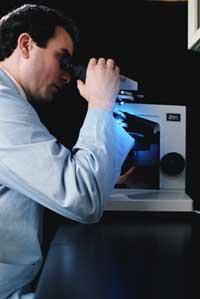Immune system cops
In these cases, the immune system itself does not know the cells of the body and, as with strangers, reacts and destroys, leading to serious health problems.

Fortunately, immune system control measures are very strict and autoimmunity cases are not very numerous. Researchers at the Wistar Institute in Philadelphia (USA) offer explanations about the control of immune system T lymphocytes in the journal Nature Immunology.
T lymphocytes are those produced by the immune system in the thymus and destroy aggressive cells, as well as cells that form variants of conventional molecules. Most autoimmune diseases are caused by T-cells that react with the body's molecules. T lymphocytes mature in the thymus and in this process harmful T lymphocytes are detected and destroyed that react with the molecules of the body. However, some T cells escape this control and reach the blood. New control measures have now been detected and so-called T-cell regulators have been studied. These cells act as police, detecting harmful T lymphocytes and achieving their proper functioning rather than destroying them. T-cell regulators also function in the thymus itself and prevent autoimmune diseases and immune system defects.
In addition, T lymphocyte regulators are very sensitive to antigens, that is, they react before normal T lymphocytes and to a smaller number of antigens. T lymphocytes reach damaged tissue faster than normal lymphocytes and they are activated very easily, so they can also react very quickly to harmful T lymphocytes where they occur.
This research is very important to understand autoimmune diseases and find the right remedies for them. If a pathway is found to control the production of Timo lymphocyte regulators, it can be a pathway to prevent these diseases and the rejections that occur in organ transplants.
Buletina
Bidali zure helbide elektronikoa eta jaso asteroko buletina zure sarrera-ontzian











